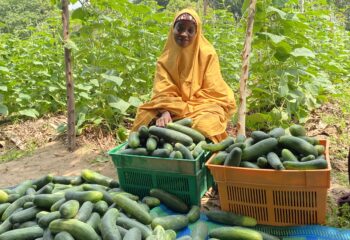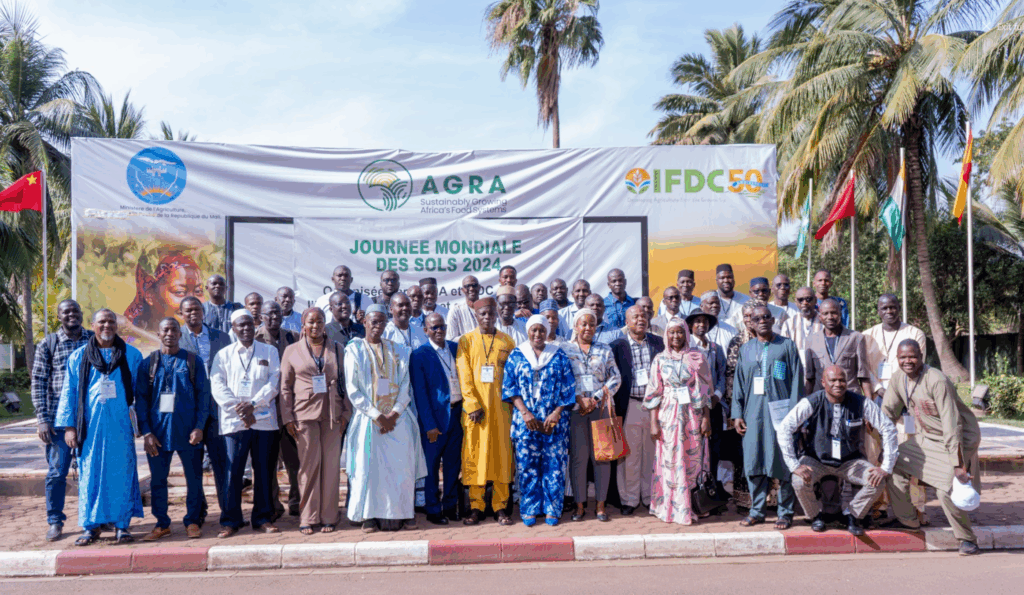
While World Soil Day is officially observed on December 5, the dialogue it inspires on soil health and sustainability continues throughout the year.
In honor of the 2024 World Soil Day under the theme “Caring for Soils: Measure, Monitor, Manage,” the Soil Values program played a leading role in organizing landmark events in Burkina Faso and Mali that brought together various agricultural stakeholders and highlighted innovative strategies, approaches, and practices for sustainable soil health management.
In collaboration with the National Bureau of Soils (BUNASOLS), AGRA, and the Ministries of Agriculture of Burkina Faso and Mali, the Soil Values program organized events for constructive discussions to identify clear recommendations for best practices in regards to specific soil types in these countries.
In Mali, a lack of up-to-date soil fertility mapping is hindering effective agricultural land management. According to Dr. Mohamed Dicko, Research Director at the Institute of Rural Economy (IER), the degradation of soil fertility in Mali is manifested by phenomena such as erosion and acidification.
Possible solutions include soil and water conservation techniques and integrated soil fertility management (ISFM). Unfortunately, the data needed to inform these practices originate from general soil mapping dating back to 1983. Thus, detailed soil mapping for the country is desperately needed.
Similarly, in Burkina Faso, a land degradation map from 2002 is available but updates are urgently needed. Updating the data will support decision-making and the selection of interventions aimed at restoring soil health.
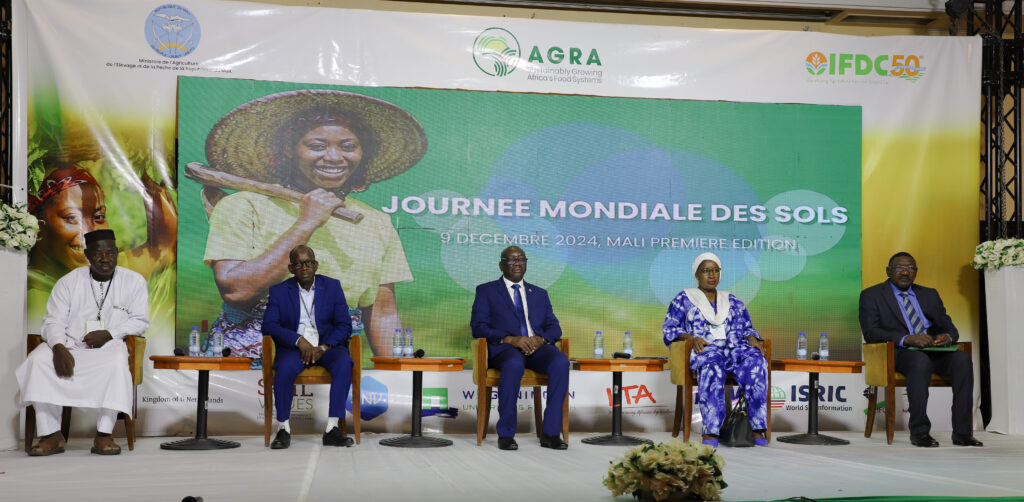
For Burkina Faso, the Soil Values program will be able to rely on its key partner in this initiative, BUNASOLS. BUNASOLS Director General Dr. Louis Yaméogo noted that the institution conducted studies covering 92% of the national territory, contributing to the improvement of soils and the living conditions of farmers.
Additionally, discussions on soil fertility highlighted the complexity of assessing soil health in the Sahel. Professor Michel Sedogo, a soil health specialist in Burkina Faso, pointed out that researchers must continue their investigations to refine necessary indicators and better understand the complex dynamics that influence soil quality.
In the Sahel, several programs have been launched to preserve agricultural land, including the African Union Great Green Wall Initiative. However, to ensure more efficient and sustainable management, agricultural stakeholders recommend the development of country-specific soil fertility maps to guide agricultural practices and policies.
To address persistent challenges in soil health and sustainable agriculture, experts at the recent events emphasized the need for inclusive, coordinated solutions. Dr. Abdoulkadri Oumarou Touré, a researcher at the University of Social Sciences and Management of Bamako, called for the creation of dialogue platforms that would bring together stakeholders to guide the effective implementation of soil-related policies—ensuring local communities are meaningfully included in the process.
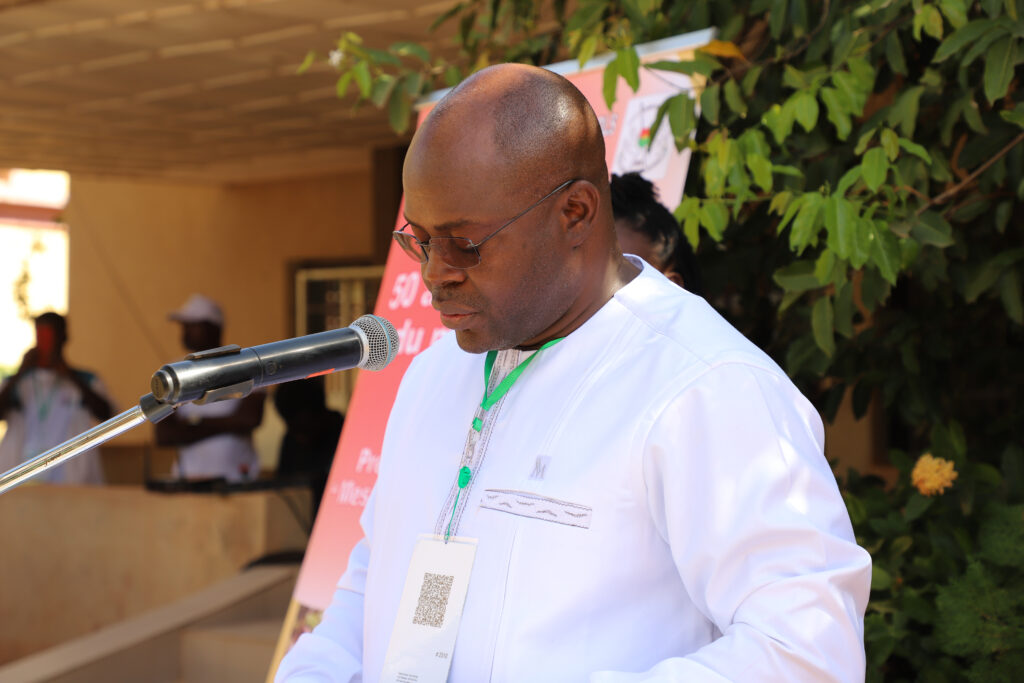
Building on this, Abdoulaye Koureyssi, Coordinator of Mali’s National Rice Producers Platform, stressed the need for stronger financing mechanisms, enhanced technical expertise, and a strategic review of agri-food research to better align with today’s evolving agricultural challenges.
Echoing the need for structural reform, agricultural engineer Bocary Kaya advocated for land and agrarian reforms that would encourage farmers to invest in innovative and sustainable soil management technologies. He cautioned, however, that without proper oversight, even large-scale investments could lead to unintended consequences.
Soil fertilization and resilience also stood out as key pillars of sustainable agriculture. Fagaye Sissoko from the National Center for Agricultural Research (CNRA) underlined the benefits of conservation agriculture, such as reduced tillage, improved soil cover, and agroforestry using fast-growing species, and the need for improved use of quality organic manure among producers.
These high-level discussions reinforced the urgency of adopting innovative, integrated approaches to restore soil health across the Sahel. A key element of this effort is advancing soil mapping to generate accurate, localized data that can inform better decision-making, resource allocation, and land management practices.
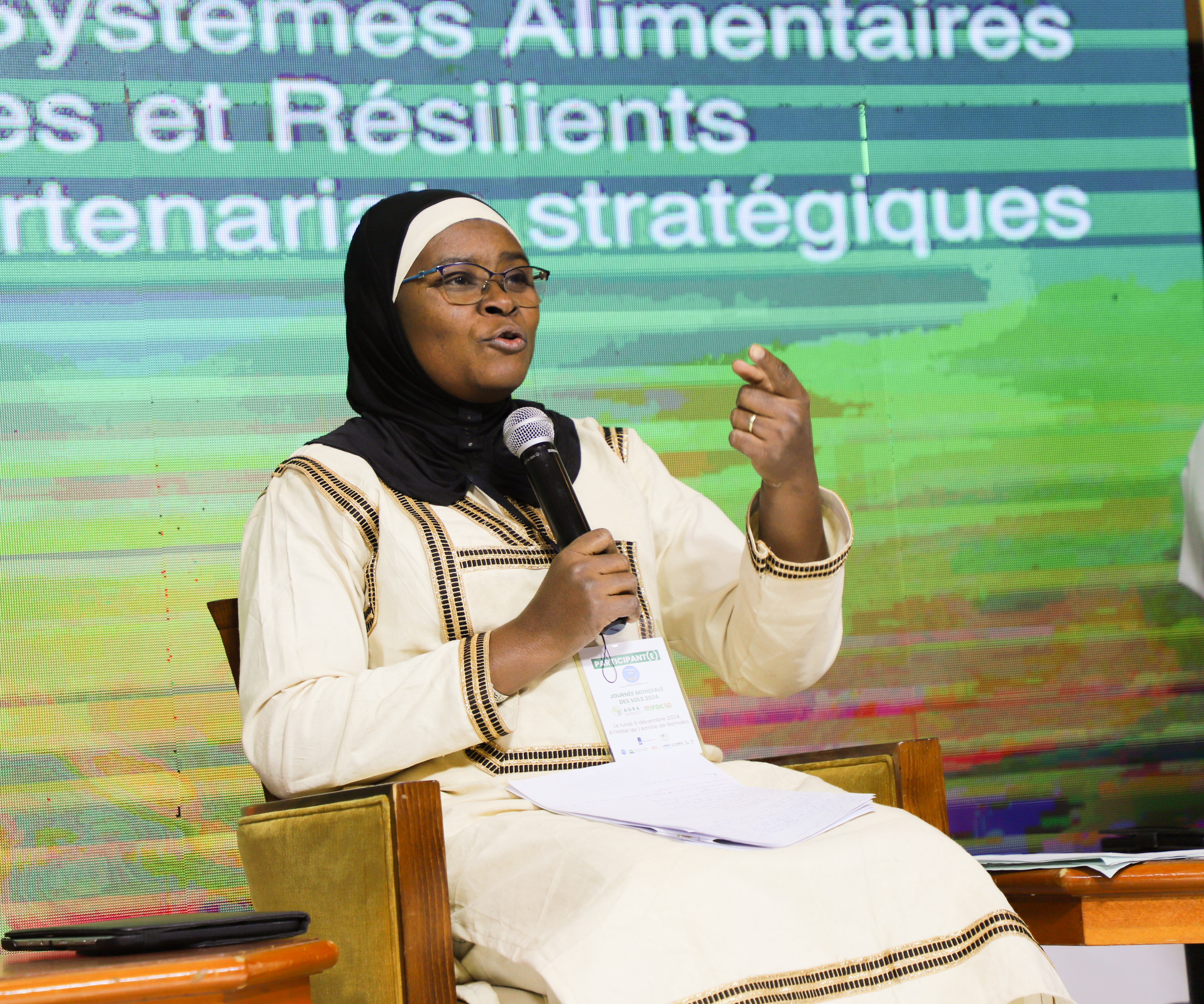
As an initiative designed to restore and sustainably manage soil fertility across the Sahel, Boubacar Traoré of the West Africa Food System Resilience Program (FSRP) pointed to Soil Values’ integrated landscape approach as essential for managing soil fertility holistically.
By uniting efforts across public institutions, research bodies, civil society, and the private sector, the Sahel can build more resilient agricultural systems and secure long-term food security for its growing population.
Funded by the Directorate-General for International Cooperation (DGIS), Soil Values is being implemented over 10 years (2024-2034) by the International Fertilizer Development Center (IFDC), in consortium with SNV and Wageningen University and Research (WUR) and in collaboration with knowledge partners, such as AGRA, the Center for International Forestry Research and World Agroforestry (CIFOR-ICRAF), the International Institute of Tropical Agriculture (IITA), ISRIC – World Soil Information, and the International Water Management Institute (IWMI).



